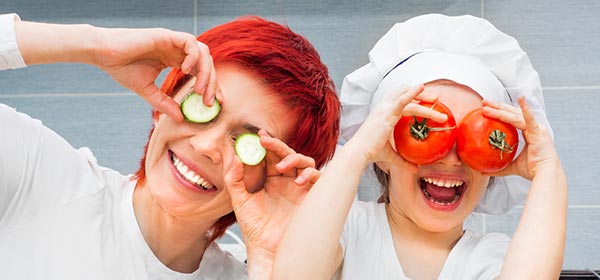Diminishing vision can be a natural part of the ageing process. There are, however, many foods which contain key nutrients for eye health. Here is a rundown on some foods, most of which can be found in your local supermarket or greengrocer.
Orange coloured fruits and vegetables (such as sweet potatoes, carrots and apricots) and leafy greens (such as kale and spinach) are rich in vitamin A. Vitamin A helps your retina, cornea and membranes of the eye to function correctly. A deficiency can lead to night-blindness or ‘dry eye syndrome’.
Oily fish and shellfish; plant and nut oils; and walnuts, flaxseeds, eggs, chicken and beef are packed with omega-3 fatty acid. They are needed to maintain the integrity of retinal cells and promote retinal development and repair. Also, Omega-3s help your eye’s oil-secreting glands which keep your peepers well-lubricated.
Lutein, zeaxanthin and betacarotene belong to a family of organic pigments known as carotenoids. These are found in green vegetables such as kale, spinach, broccoli, peas and beans; as well as bright yellow foods such as corn and egg yolks. Lutein and zeaxanthin, in particular, help to protect your eyes against the ravages of UV light – while betacarotene is converted by the body into vitamin A.
Capsicum, Brussels sprouts, broccoli, tomatoes, oranges, grapefruit, papaya and berries all contain vitamin C, which supports the health of the blood vessels in your eyes. Vitamin C is a water-soluble vitamin which your body can’t store. So it’s important to make sure that it’s a part of your daily diet, in order to maintain good levels. Smokers need to be even more mindful, because tobacco can deplete vitamin C levels.
Oysters, beef, lobster, salmon, egg yolks, cheese and legumes are filled with zinc – an essential trace mineral that helps to transfer vitamin A from the liver to the retina in order to produce the pigment melanin, which protects eyes from harmful rays.
Vitamin E plays a major part in preventative eye care, thanks to its ability to stabilise levels of other key vitamins and antioxidants in the body. Sunflower seeds and nuts such as almonds and peanuts; and cold-pressed, unrefined vegetable oils are good foods in which to find vitamin E.
Read more at MindBodyandSoul.com.au.
Related articles:
Seven foods for healthy eyes
A trick to see if you lose your glasses
Reduce your risk of vison loss

